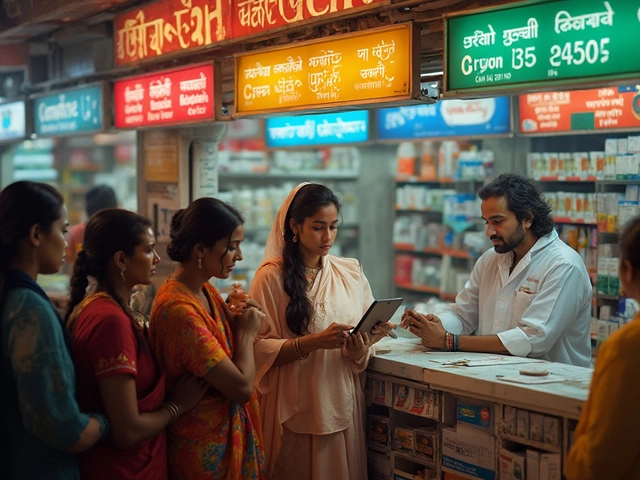Fertility Options: Safe Paths to Parenthood in India
If you’re thinking about starting a family, the first question is usually – what’s the safest way to do it? In India, you have a mix of traditional, natural routes and high‑tech assisted methods. Both can work, but each comes with its own set of medication risks that many people overlook. Below we break down the top options, highlight what to watch out for, and give you clear steps to keep your health in check.
Natural Fertility Boosters You Can Try Today
Before you head to a clinic, consider lifestyle tweaks that have real impact. A balanced diet rich in folate, iron, and omega‑3 fatty acids supports hormone production. Simple foods like spinach, lentils, walnuts, and fish can raise fertility scores without adding drug side effects.
Stress management matters too. Studies from Indian health centers show that regular yoga, meditation, or even a 20‑minute daily walk can lower cortisol, which often stalls ovulation. The good news? These practices don’t bring any toxic chemicals into your body.
If you suspect a hidden medical issue, a basic blood panel can reveal thyroid problems or vitamin deficiencies. Fixing those with prescribed supplements is usually safe, but always ask your doctor about the supplement’s purity – counterfeit products can contain harmful additives.
Assisted Reproductive Technologies (ART) and Their Safety Tips
When natural methods aren’t enough, many couples turn to IVF, IUI, or embryo transfer. These procedures involve hormone injections to stimulate egg production, and that’s where medication safety becomes crucial. In India, the most common drugs are clomiphene citrate and gonadotropins. Both are effective, but they can raise the risk of ovarian hyper‑stimulation syndrome (OHSS) if not monitored properly.
To keep OHSS at bay, ask your clinic for a low‑dose protocol and regular ultrasound checks. Some centers now use “trigger shots” with GnRH agonists, which cut OHSS rates dramatically compared to traditional hCG triggers. It’s a small change in the protocol, but it can make a big difference in safety.
Another hidden risk is the quality of the medications themselves. Counterfeit fertility drugs have been reported in a few Indian pharmacies, and they may contain the wrong hormone levels or toxic fillers. Always source medicines from a certified hospital pharmacy and ask for batch numbers before the first injection.
If you’re considering donor eggs or sperm, the screening process for donors includes infectious disease testing, but also checks for any exposure to toxic substances like heavy metals. Request a copy of the donor’s health report – it’s your right and can prevent future complications for both mother and baby.
In short, whether you lean on natural changes or high‑tech IVF, the key is staying informed about the medicines you use. Talk openly with your doctor, verify every drug’s source, and keep an eye on your body’s responses. By doing that, you lower the chances of unwanted side effects and give yourself the best shot at a healthy pregnancy.
Ready to take the next step? Start with a simple blood test, tweak your diet, and schedule a consultation with a reputable fertility clinic that follows strict medication safety standards. Parenthood is a big journey – making it safe is the smartest move you can make.

IVF Gender Selection Cost: What You Need to Know
IVF gender selection is a medical process allowing parents to choose their baby's sex. The cost varies based on factors like location, clinic choice, and legal considerations. This article explores the expenses involved in IVF gender selection, offering tips on budgeting and understanding legal concerns. We also discuss the technological aspects driving these costs and share practical advice for making informed decisions.

Strongest Drugs for Nerve Pain: What Really Works?
May, 22 2025



